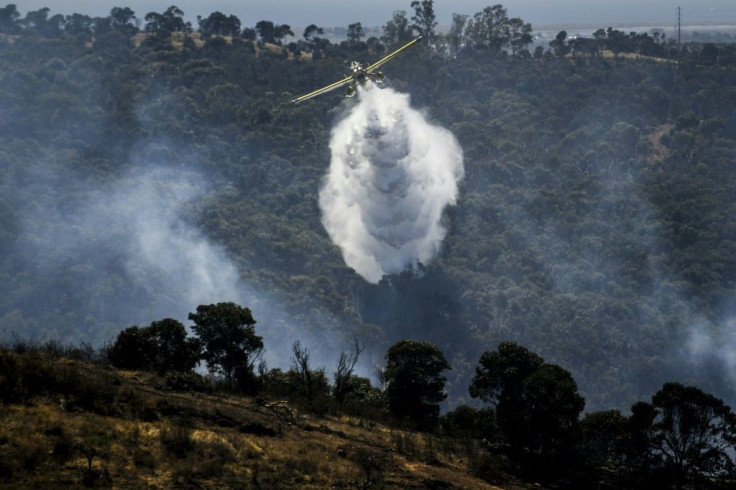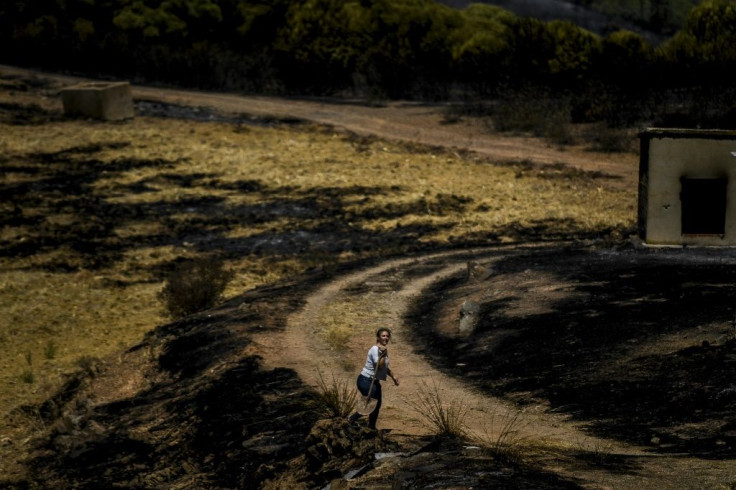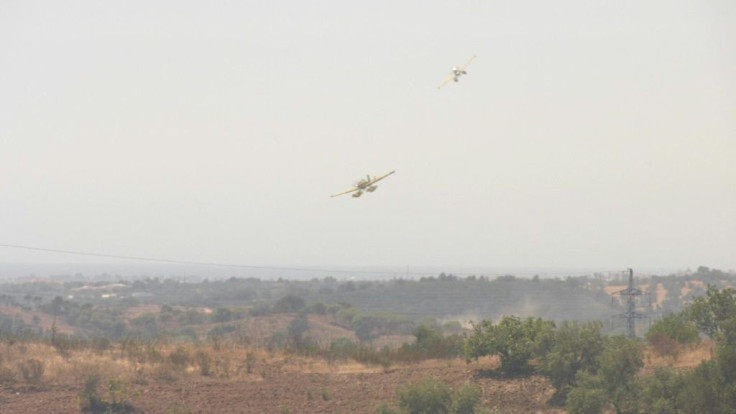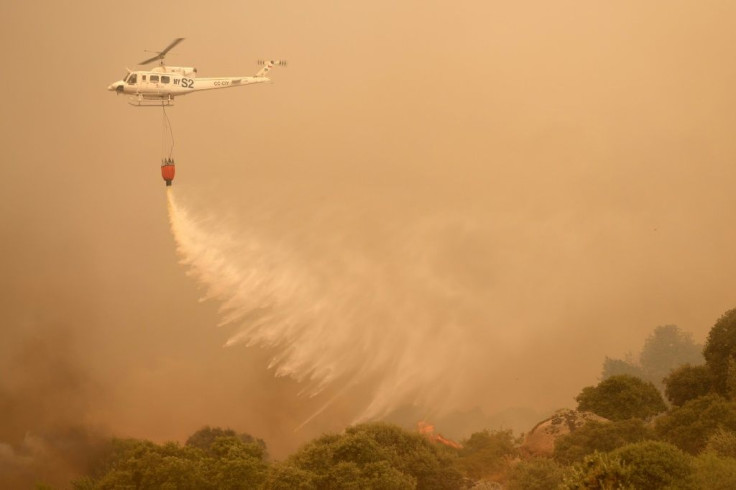Portugal Battles Wildfire As Heatwave Persists
Hundreds of Portuguese firefighters on Tuesday struggled to control a blistering blaze that broke out in southern Portugal the day before, forcing the evacuation of around 80 people.
Portugal is the latest European nation to face extreme weather and fierce fires, which climate scientists warn will become increasingly common due to man-made global warming.

Firefighters initially managed to control the wildfire that broke out in the early hours of Monday near the Spanish border in the tourist region of Algarve, but the blaze picked up again in the afternoon, spreading across around 3,000 hectares (7,400 acres).
It started in the municipality of Castro Marim, in the hinterland near the Spanish border.

Fanned by winds, it progressed "like lightning towards the municipalities of Tavira and Vila Real de Santo Antonio," reaching a perimeter of about 40 kilometres and ripping through an estimated area of 9,000 hectares, regional civil protection force commander Richard Marques told a press conference.
A police official reported the evacuation of 81 people from around a dozen hamlets.

One firefighter was sent to hospital after being burned and two others were treated after inhaling smoke, a spokesperson for civil protection told AFP.
Several farm and residential buildings were engulfed by the flames, local media reported.

As the flames spread through pine forests towards the coast, authorities on Monday closed the motorway that crosses Algarve.
The motorway was reopened mid-Tuesday. However, Marques told reporters that around 600 firefighters -- supported by around 200 vehicles and eight aircraft -- were wary of "still worrying" weather conditions on Tuesday afternoon.
Faced with scorching temperatures, the government decided on Monday to extend the fire alert in place since Friday by 48 hours.
Memories are still fresh of the horrific fires that killed dozens of people in Portugal in 2017.
In neighbouring Spain, a fire that broke out Saturday in Navalacruz, near the central city of Avila, was reported by authorities to be abating.
Around 1,000 people had to be evacuated from the area over the weekend as the wildfire blazed through around 12,000 hectares of forestry.
Italy, Greece, Algeria and Turkey have also experienced heatwaves and devastating wildfires this summer.
© Copyright AFP 2024. All rights reserved.





















